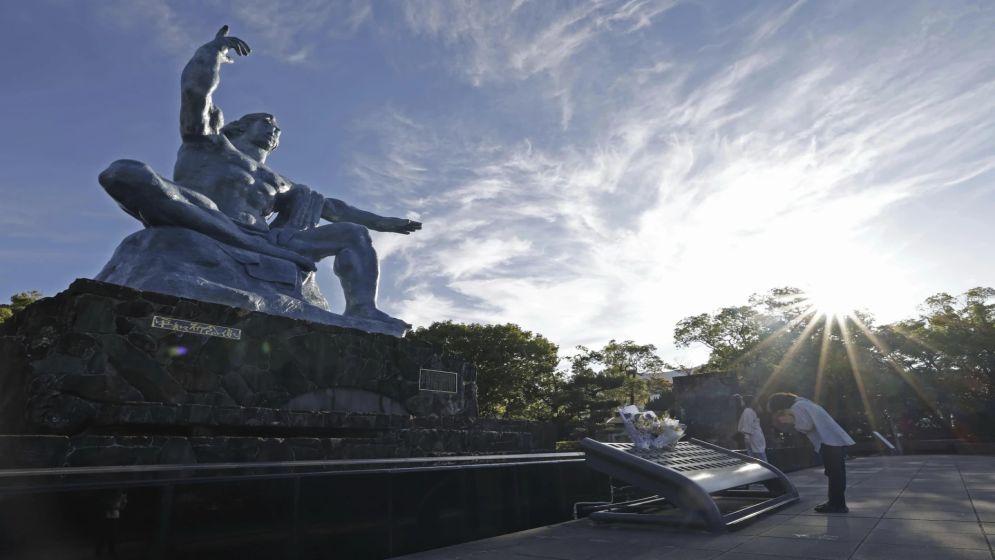Nobel Peace Prize winners aim to pass anti-nuclear message to younger generations
UNB
Publish: 12 Oct 2024, 02:39 PM

TOKYO,
Oct 12 (AP/UNB) - This year's Nobel Peace Prize was awarded to Nihon Hidankyo,
a group of aging atomic bomb survivors dedicated to sharing the horrors they
experienced 79 years ago in Hiroshima and Nagasaki.
With the survivors,
known as hibakusha, dwindling in numbers, they view this recognition as a vital
opportunity to pass their anti-nuclear message to future generations.
Toshiyuki Mimaki, a
senior member of Hidankyo's Hiroshima branch, emphasized the importance of
ensuring their message lives on. "We must hand down our experiences to
future generations, not just in Japan but across the world," Mimaki said,
following the Nobel announcement.
Despite their advanced
age, averaging 85.6 years, the hibakusha continue their grassroots efforts to
raise awareness of the dangers of nuclear weapons. Their activism stems from a
deep desire to prevent future generations from experiencing the same
devastation they faced - including radiation-related health issues and social
discrimination.
However, younger
generations have struggled to grasp the urgency of nuclear disarmament. The
number of hibakusha groups across Japan has decreased, and the Japanese
government has yet to sign the Treaty on the Prohibition of Nuclear Weapons, as
it remains under the U.S. nuclear protection umbrella.
Still, there are signs
of hope. The Nobel committee highlighted the emergence of a youth movement, as
seen when three high school students joined Mimaki at the prize announcement,
pledging to continue the survivors' mission. "The Nobel Peace Prize has renewed
my commitment to abolishing nuclear weapons," said student Wakana Tsukuda.
Efforts to document
survivors' stories are growing across Japan, with young volunteers assisting
hibakusha in preserving their personal narratives. Initiatives like the Japan
Campaign to Abolish Nuclear Weapons also aim to connect younger generations
with the survivors' cause.
Hidankyo, founded in
1956, emerged during Japan's anti-nuclear movement, which grew in response to
U.S. hydrogen bomb tests. Today, only 106,823 survivors remain eligible for
government medical support, as the number of hibakusha steadily declines.
The survivors' tireless
work continues to inspire hope, with their message of peace and the abolition
of nuclear weapons now passed on to the younger generation.
"I had goose bumps
when I heard the announcement," said a beaming Wakana Tsukuda. "I
have felt discouraged by negative views about nuclear disarmament, but the
Nobel Peace Prize made me renew my commitment to work toward abolishing nuclear
weapons."
Another high school
student, Natsuki Kai, said, "I will keep up my effort so we can believe
that nuclear disarmament is not a dream but a reality."
In Nagasaki, another
group of students celebrated Hidankyo's win. Yuka Ohara, 17, thanked the survivors'
yearslong effort despite the difficulty.
Ohara said she heard her
grandparents, who survived the Nagasaki bombing, repeatedly tell her the
importance of peace in daily life. "I want to learn more as I continue my
activism."
The first U.S. atomic
bombing killed 140,000 people in the city of Hiroshima. A second atomic attack
on Nagasaki on Aug. 9, 1945, killed another 70,000. Japan surrendered on Aug.
15, bringing an end to its nearly half-century aggression in Asia.
END/UNB/FH/1225 Hrs
